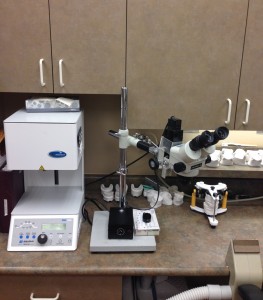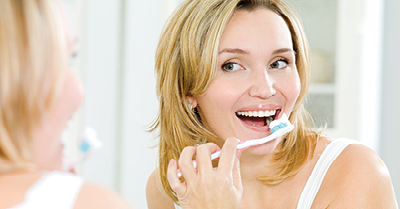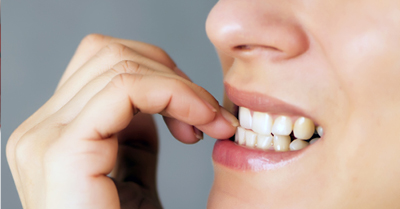At my dental office in Buckhead, we always talk about how important it is to brush everyday, twice a day, and to floss at least once. Following this routine is a great way to keep your mouth protected from harmful bacteria and acid, but there’s one thing we’re forgetting and want to make sure you don’t forget about it too.
The Tongue
We often forget about our tongues when we talk about oral hygiene. But we shouldn’t. A clean tongue is just as important as having clean teeth and clean gums. The tongue is home to about 10,000 taste buds and tons of other tiny bumps called papillae. These bumps and crevices create a great place for bacteria to thrive. And that makes a clean tongue very important for a healthy mouth.
The Cleaning Routine
Every time you brush your teeth, make sure to gently scrub the surface of your tongue. This easy task is the best way to keep your tongue, and your mouth, healthy.
Sometimes we have patients who can’t successfully brush their tongues due to a sensitive gag reflex. For these patients, we recommend using a tongue scraper. A tongue scraper is just as effective, if not more so, as brushing. A gentle scrape with this tool can immediately lower the amount of bacteria in the mouth and keep your mouth, and your teeth protected.
Along with proper brushing and flossing, and a clean tongue, you’re well on your way to getting your smile healthy. To ensure everything is working well for you and there aren’t any potential problems, it’s also really important to maintain regular appointments at my Buckhead dental office. We’ll work with you to ensure you’re getting the proper care you need and that your mouth is healthy for a lifetime.
Welcoming patients from Buckhead, Atlanta, and Sandy Springs.















